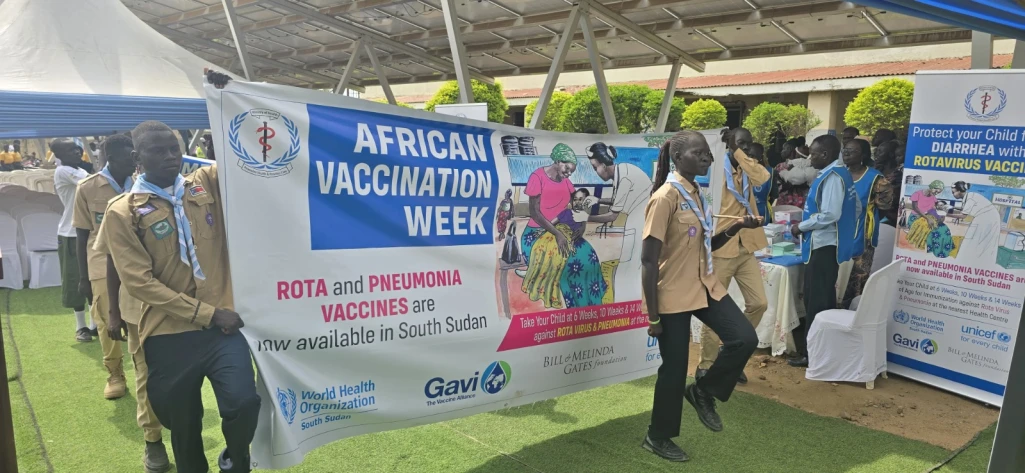
In efforts to fight against deadly childhood diseases, South Sudan introduced three new vaccines: the Pneumococcal Conjugate Vaccine, the Rotavirus Vaccine, and a second dose of the Measles-Containing Vaccine.
Dr. Anin Ngot Mou, Undersecretary at the Ministry of Health,
said the government is doing its part and urged the people to take action by
getting vaccinated and protecting their families.
“While the Government, through its health entities, is
working to ensure protection from vaccine-preventable diseases by introducing
these new vaccines, the responsibility to make use of them to protect yourself
and your family is in your hand,” said Dr. Mou.
The rollout comes in as the country observes African
Vaccination Week, which runs from April 24 to 30 under the theme: “Immunization
for All is Humanly Possible,” coinciding with the 50th anniversary of the
Expanded Programme on Immunization, a global initiative that has saved millions
of lives.
South Sudan’s immunization program has, since 1976, introduced
vaccines like BCG, OPV, DTP, measles, and tetanus toxoid.
In recent years, it’s added the Pentavalent vaccine (2015),
inactivated polio vaccine (IPV) in 2016, and even the malaria vaccine in 2024.
The three new vaccines from the UNICEF, global Vaccines
Alliance and World Health Organization are the latest step in that progress.
Since the first African Vaccination Week in 2011, over 180
million people have been reached across the region through vaccination and
health interventions.
Dr. Humphrey Karamagi, WHO Representative for South Sudan,
emphasized the importance of prioritizing pregnant women and children as part
of the country's vaccination efforts.
“Prioritizing pregnant women and children will be key to
building a safer and healthier population, helping us to save lives and build a
robust health system,” Dr. Karamagi asserted.
Over the past five decades, immunization has saved more than
154 million lives, averaging over 3 million lives annually.
In Africa, it has saved over 50 million lives, and data
shows that in 2024, a child under 10 in Africa had a 50% higher chance of
surviving to their next birthday due to vaccination programs.
Noala Skinner, UNICEF Representative in South Sudan,
highlighted the life-saving impact of these advancements, noting that African
Vaccination Week and 50 years of immunization progress remind everyone of the
power of vaccines to give every child a fighting chance.
“The introduction of these new vaccines marks a major
milestone in South Sudan’s efforts to ensure no child dies or becomes sick
because of a vaccine-preventable disease,” Skinner stated.
Despite ongoing vaccination efforts, South Sudan's
immunization program faced challenges in the past year, including outbreaks of
measles, yellow fever, cholera, and cVDPV2.
The influx of returnees and refugees from the Sudan crisis,
along with severe flooding and displacement, has further strained health
systems.
However, Immunization services have continued in health
facilities and affected areas, despite the challenges. To address the backlog
of missed vaccinations from 2019-2024, the government launched the Big Catch-Up
initiative, targeting children under five who missed or never received routine
immunizations.
In collaboration with UNICEF and WHO, the campaign is
underway in 30 counties, aiming to vaccinate 146,054 zero-dose children.